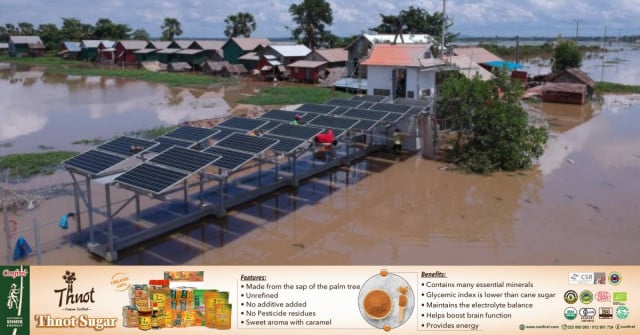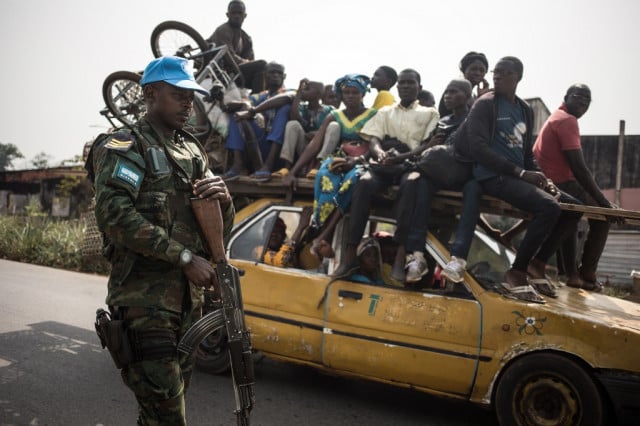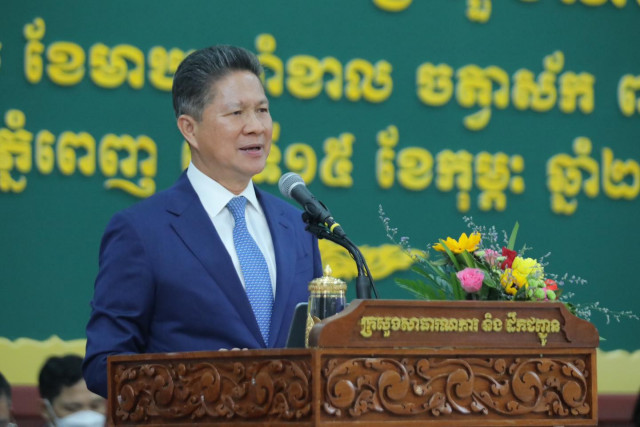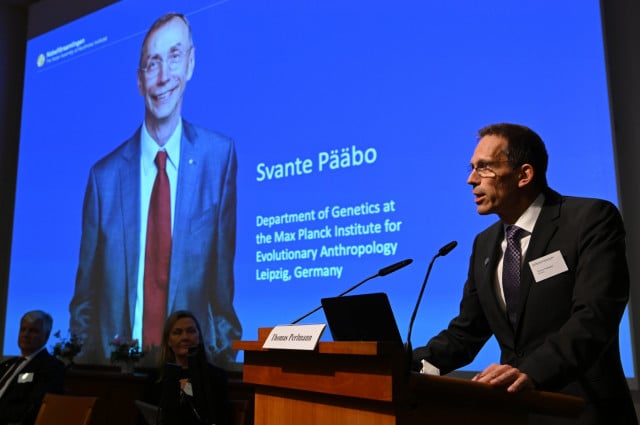Lack of Investment Hinders Clean Energy Development

- By Chhuon Kongieng
- November 21, 2023 5:10 PM
PHNOM PENH – Cambodian and Indonesian energy experts suggest increased solar energy development, encouraging more clean and renewable energy while pointing out the challenges posed by the lack of investment in the sector.
Kong Pharith, founder of IMB Cambodia – a professional solar supplier funded by the United Nations Development Programme (UNDP), the Asian Development Bank (ADB) and the International Fund for Agricultural Development (IFDB) – said solar energy is a suitable renewable energy source for Cambodia.
He explained that there is sufficient and strong sunlight in the country, and added that the use of solar panels would not induce high installation costs, even in remote areas.
“We also studied the wind speed and water flow in Cambodia, but they aren’t enough to support wind power plants or hydropower plants,” said Pharith.
“We also studied the locations [best suited for solar farms] while making sure to avoid impacts on protected areas or eco-tourism sites. But we estimated that energy generated from hydropower stations would be four to five more expensive than using solar, given rainfalls are inconsistent.”
Over half of Cambodia's off-grid households rely on solar home systems for electricity, with the government aiming to electrify 70 percent of households with grid quality by 2030, according to UNDP.
Founder of IMB Cambodia Kong Pharith, undersecretary of state of the Ministry of Environment Pheav Sovuthy and Tri Mumpuni, from Badan Riset Dan Inovasi Nasional (BRIN) were discussing the potential clean energy during seminar about the Utilization of New and Renewable energy to Increase the Productivity of Rural Communities in Indonesia and Cambodia on Nov. 16. Photo: Nhor Sokhoeun
Gap to Clean Energy Goal
Pheav Sovuthy, undersecretary of state of the Ministry of Environment and a member of the National Council for Sustainable Development, said the lack of investment, and the shortage of technology and human resources hinder the growth of renewable energy in Cambodia.
He called on students to study and explore the solar energy sector, pointing out that it can help Cambodia increase the use of renewables.
Tri Mumpuni, from Badan Riset Dan Inovasi Nasional (BRIN), an Indonesian-based research institute, has been working with renewable energy projects in Indonesia for more than 30 years. She said Cambodia has the potential for clean energy but is not doing enough to fully exploit it.
“I can see that the potential is huge because Cambodia has developed it [clean energy resources],” she said. “But I can see that it not utilizing all of them. The country should start to use all of them for your people.”
Mumpuni noticed that Cambodia should convert agricultural waste into sustainable energy sources like biogas rather than throwing them away.
“If the country goes in the right direction, it has enough capacity building for young engineers and your people so that they can provide energy for your country,” she said.






 were discussing the potential c_1700557577.JPG)









